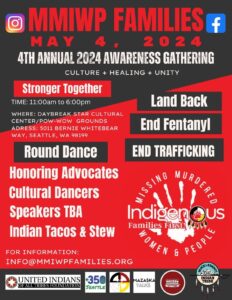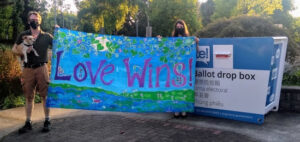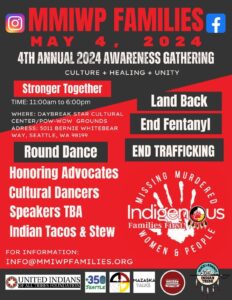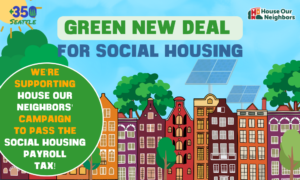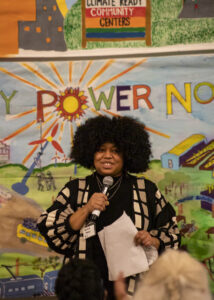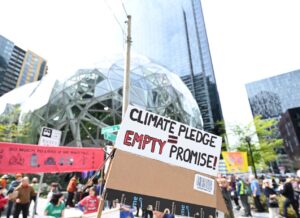We don’t know what to say.
When Harvey first formed in the Caribbean, we tried to stay abreast of every development–knowing how badly frontline communities were being hit, and how long and difficult the recovery would likely be.
Those things are still true: Harvey broke the U.S. record for rain in a single storm, and that rain mixed with a toxic soup because of damage to all the refineries and other chemical facilities in the city. Many people who were already struggling will suffer additional vulnerability for years to come–vulnerability to homelessness, poverty, and sickness.
So will those in Florida, as a result of Hurricane Irma–especially migrant farmworkers.
And now, the crisis in Puerto Rico from Hurricane Maria is beginning to come into focus, and it’s devastating (key lines: “Daily life will soon grow almost intolerable for all and dangerous for some, like the older and frail. Many parts of the hot and humid island are expected to go months without electricity, the governor said. Cooking will be onerous. Hot showers will be a memory. In some regions, clean water will be hard to access.”) One especially pressing concern is what happened to the uncovered 5-story pile of coal ash that was near to much of the flooding.
And that’s just the US–there’s also what happened to Barbuda in Irma, and the imagination-defying monsoon season in South Asia; a third of Bangladesh was under water a few weeks ago.
We here at 350 Seattle are in the business of doing all we can to stop catastrophic climate change, because we know that no matter what we do, these tragedies will continue–hurricane seasons like this one are a chilling peek into our shared future. But though it’s understandable to have less focus for the third or fourth devastating hurricane in a season, we cannot forget that each one of these affects lives–right now!–more profoundly than we can even really imagine, and for longer than we’d like to imagine. Our work is utterly essential, and so is that of the groups trying to respond to these tragedies in direct service and rebuilding.
In that spirit, we enjoin you to not only help us do all that we can to shake the system out of its torpor so that we move as rapidly as possible to clean renewable energy, but also keep an eye on our Things to Do Right Now page for the sake of its new “Respond” section, where we will try to keep current with each tragedy so that we can suggest effective on-the-ground, climate-justice-focused groups to donate to.
It’s a difficult–maybe impossible–balance: if we watch our social media feeds obsessively with each terrible storm, we won’t be able to do this essential work. But neither can we avert our eyes from what real people are dealing with right now–caused by what our fossil-fuel-soaked system is still doing to the world every day. So watch with love and give what you can–and most of all, metabolize your understanding and horror at what’s happening to fuel not despair but determination: to change that system to one that’s healthy and just for all of us.
Together, there’s so much we can save.




